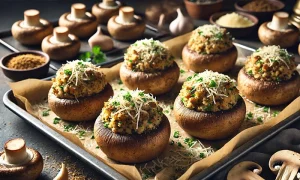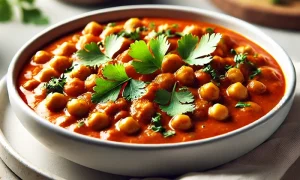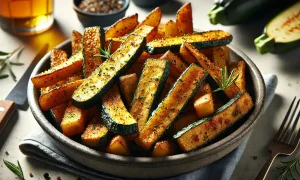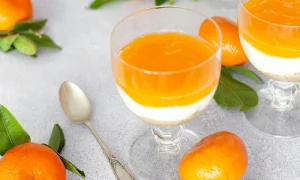Avoid These Foods: What NOT to Compost
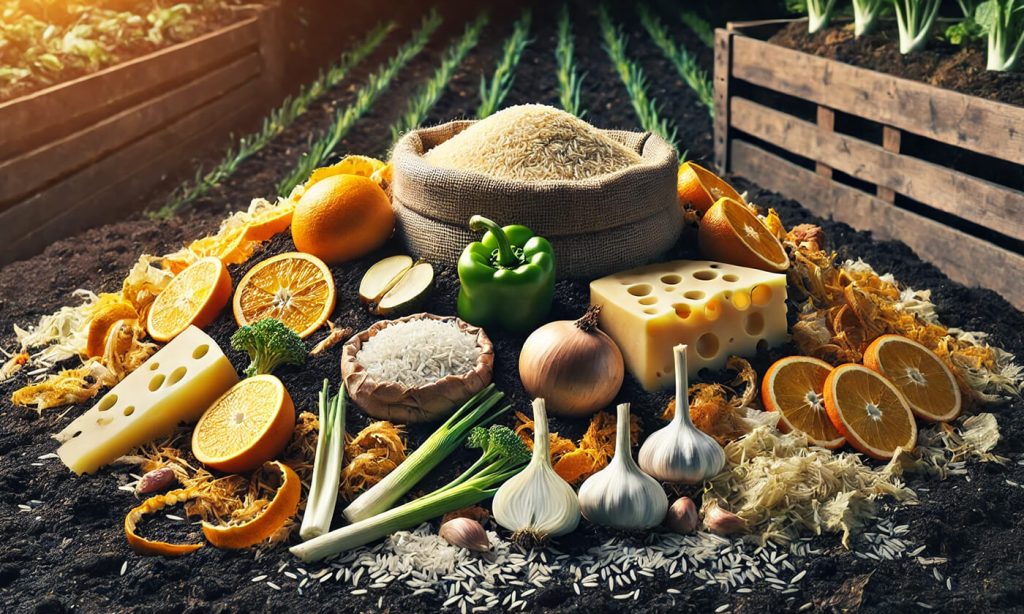
Did you know that not all kitchen scraps are created equal when it comes to composting? While composting is a fantastic way to reduce your environmental footprint, it’s essential to know what you can and can’t toss into your compost pile. From banana peels to coffee grounds, many foods are compost-friendly, but some items should be avoided to maintain a healthy compost pile.
Meat, dairy, and overly acidic foods, for instance, can attract pests and disrupt the composting process. And while rotting might seem synonymous with composting, there are certain types of decay, like disease, that you’ll want to keep out of your compost heap.
Key Takeaways
- Not all kitchen scraps are suitable for composting.
- Foods such as meat, dairy, fish, and bones are problematic due to their tendencies to attract pests, produce unpleasant odors, and decompose slowly.
- Besides attracting pests, high-acid food items like citrus peels and onions can lower the compost pile’s pH level, disrupting the composting process by creating an unfavorable environment for beneficial microorganisms.
- Fats, oils, and greasy foods should be avoided in a compost bin as they slow down the composting process and form an airflow-restricting layer within the pile.
- Diseased plants and pet waste should be kept out of the compost pile as they can introduce harmful pathogens and potentially slow down the composting process.
- To create an efficient compost heap, it’s important to maintain a balanced ratio of green (nitrogen-rich) and brown (carbon-rich) materials and monitor moisture and aeration levels in the pile.
Composting Basics
Before diving into the intricacies of what to compost and what not to, it’s vital to grasp the rudiments of composting. This natural process involves recycling various organic materials otherwise regarded as waste and turning them into rich soil.
Understanding these composting basics ensures you maximize the benefits, maintaining a healthy and efficient compost pile. It’s important to remember that biodegradable and compostable aren’t interchangeable – there are certain items that should not be composted even though they will break down naturally. Composting isn’t just about waste reduction; it’s about creating a valuable resource for your garden out of kitchen waste, contributing to a healthier planet.
Common Food Items to Exclude From Your Compost Bin
As part of a sustainable lifestyle, it’s beneficial to be discerning about what kitchen scraps go into a compost heap. It’s not a case of “anything goes”; indeed, some items can disrupt the balance of your compost pile, or attract undesirable elements.
No need to worry about some of these categories if you’re vegan or eating plant-based meals! We still wanted to include them to provide a comprehensive overview for those that follow different diets or live with someone who does.
| Item | Reason to Not Compost |
|---|---|
| Diseased Plants | Spreads disease through compost |
| Animal Fats and Bones | Attract pests and can cause odor |
| Bread Products | Can attract pests and mold |
| Cat Litter | May contain pathogens |
| Charcoal Ash | Contains substances harmful to plants |
| Cigarette Butts | Contain toxins and do not break down |
| Citrus Fruit Wastes | May kill beneficial composting worms |
| Colored Paper | May contain toxic inks and dyes |
| Dairy Products | Creates odor and attracts pests |
| Disposable Diapers | Contains human waste and plastics |
| Disposable Wipes | Often contain plastic fibers and chemicals |
| Glossy Paper | Contains inks and chemicals harmful to compost |
| Heavily Salted Foods | Can harm soil structure and plant health |
| Hair | Can contain chemicals from treatments |
| Invasive Plant Species | Can spread undesirable plants through compost |
| Leather Goods | Treated with chemicals and slow to decompose |
| Meat, Fish, and Bones | Attracts pests and causes odor |
| Non-Organic Waste | Non-biodegradable and can contaminate the compost |
| Oily Foods | Can slow down the composting process |
| Onions and Garlic | Can inhibit the growth of beneficial compost microbes |
| Orange Peels | Lowers pH level |
| Painted or Varnished Wood | May contain toxic chemicals |
| Pet Waste | Can contain parasites and pathogens |
| Pine Needles | Decompose very slowly and can acidify the compost |
| Rice | Can attract pests and cultivate bacteria |
| Sauces and Gravies | Can contain fats and oils that slow composting |
| Sticky Labels on Fruits | Adhesives may contain toxic chemicals |
| Tea and Coffee Bags | Some bags contain synthetic fibers |
| Treated Plant Material | May contain pesticides or herbicides |
| Treated Wood | Contains harmful chemicals |
| Used Personal Products | Can contain harmful pathogens and chemicals |
| Vacuum Cleaner Bags | May contain synthetic fibers and inorganics |
| Weeds | May lead to the spread of seeds |
Meat, Fish, and Bones: The Risk of Pests and Odors
Though a rich source of nitrogen, your compost bin isn’t the best place for meat, fish, and bones. These items decompose gradually, causing a long-term stench that can become bothersome. Moreover, they are also known to attract pests like rodents and raccoons. Introducing these elements into your compost pile can inadvertently turn it into a hub for a variety of creatures, an outcome you’d definitely like to avoid.
Dairy and Eggs: Attracting Unwanted Guests
Items like cheese and eggs might seem like a good addition to your compost pile, given their organic nature. However, they too can bring about unwanted challenges for your composting adventure. Like meat, fish, and bones, dairy products and eggshells both can attract pests and rodents. Additionally, there’s an odor issue; as these foods break down, they emit an intense smell that can be unpleasant.
Oils, Fats, and Greasy Foods: Slowing Down the Process
Oils, fats, and greasy foods like fried items aren’t valuable for your compost bin. Their decomposition takes a considerable amount of time and they tend to form a layer within the compost heap that restricts airflow. Without sufficient air, the composting process slows and even stalls, making the pile less effective.
Ensure a thriving compost pile by carefully choosing your compost materials. By avoiding these types of food waste, you’ll be taking an essential step in creating a more balanced, robust, and odor-free compost heap.
Non-Food Items to Keep Out of the Compost Pile
While selecting the right kitchen scraps might be crucial, there’s also non-food items that don’t belong in your compost pile. Incorrect composting materials can possibly introduce dangerous pathogens or slow down the composting process. Particular caution should be applied when considering adding diseased plants and pet waste to the pile.
Diseased Plants: Spreading Trouble in the Garden
A healthy compost pile cultivates beneficial bacteria. Unluckily, infected plants might carry diseases through these beneficial bacteria, thus infecting your otherwise healthy plants. Suppose you’ve come across plants afflicted by fungal diseases, bacterial blotches, or viral conditions. In that case, it’s better to discard them separately rather than introducing them into your compost pile. The detrimental pathogens can withstand the composting process, emerging in your rich compost to infect other plants in the garden.
Pet Waste: Health Hazards and Pathogens
While composting may seem like a smart way to convert pet waste into usable plant nutrition, it isn’t often the best idea. Many pets, particularly cats and dogs are carriers of specific viruses, bacteria, and parasites. Chucking pet waste into the compost pile creates a scenario where these harmful pathogens survive, affecting the overall quality of the compost. Further, these organisms could potentially pose health risks upon contact or even be absorbed into the produce grown using the compost. Thus, it’s advisable to give pet waste a miss when you’re adding organic matter to the compost pile.
Surprising Items You Should Avoid Composting
There are some unexpected items that one must avoid composting due to their effect on the compost’s balance and health. You might be including them unwittingly without realizing their adverse effects. Items such as citrus peels, onions, and cooked food leftovers can cause challenges to your composting process.
Citrus Peels and Onions: Affecting Compost pH
When you add citrus peels and onions to your compost heap, it’s not merely adding more organic material. These items noticeably alter the pH level of your compost pile. Both citrus peels and onions possess a high acidity level. An overly acidic compost pile potentially hinders the performance of beneficial microorganisms, slowing down the decomposition process. A healthy compost pile maintains a pH level between 5.5 and 8, which is near neutral or slightly alkaline. Simply put, it’s advisable to limit the addition of citrus peels and onions, ensuring a balanced pH level for microorganisms to thrive.
Cooked Foods and Leftovers: When Good Foods Turn Bad
Cooked food and leftovers might seem like logical additions to the compost pile, given they’re biodegradable. However, they often contain oils, fats, or salts, which can create problems. Such materials are hard for beneficial bacteria to break down, and they can even turn rancid, causing an unpleasant odor. Furthermore, they may attract pests like rodents and flies. So, even though it might feel counterintuitive to throw away those leftovers, in general, it’s best to keep them out of your compost pile. Avoiding these surprising items, you can maintain a healthier and more efficient compost heap.
Best Practices for Composting Effectively
To operate a healthy compost heap, it’s crucial that you understand and abide by certain practices. Maintaining a balanced ratio of green to brown materials and ensuring sufficient aeration and moisture levels are two such practices.
Balancing Greens and Browns in Your Compost
A well-functioning compost pile needs a blend of green and brown ingredients. Greens provide nitrogen and are essentially your vegetable and fruit scraps, coffee grounds, tea bags, and fresh grass clippings—for example, tomato ends, apple cores, and coffee filters. Browns supply carbon and involve dry leaves, plant stalks, shredded paper and cardboard, and untreated wood chips. You can consider autumn leaves, straw, shredded newspaper, and sawdust as part of brown materials.
Achieving a balanced carbon-to-nitrogen ratio is key. Ideally, aim for about two-thirds browns (carbon) to one-third greens (nitrogen). However, there’s no need for precision—it is the rough ratio that matters. Composting is a natural process and, despite our attempts to manage it, running slightly over or under this ratio won’t make a massive difference.
Monitoring Moisture and Aeration
The level of moisture in your compost heap plays a vital role. Your compost pile needs to be as wet as a wrung-out sponge: moist, but not dripping. If the compost dries out, it slows down the decomposition process. In contrast, an overly saturated compost bin results in less air space, leading to odorous problems. So ensure the compost stack is just right—not too dry, not too wet.
Air is essential for the composting process. It aids the aerobic bacteria—the good bacteria—in breaking down the organic materials. Lack of aeration can lead to anaerobic conditions, leading to a smelly compost pile. Turn your compost regularly, at least once every few days, to infuse it with oxygen and keep it well-aerated.
Applying these effective composting practices can provide a beneficial soil additive that enriches your garden’s soil fertility, giving plants a healthy environment to thrive in.
Frequently Asked Questions
Can I add moldy fruit to my compost?
Yes, moldy fruit is good for composting. It introduces beneficial fungi which aid in faster and efficient decomposition of other compost materials.
Is it okay to compost rotten vegetables?
Definitely. Decomposition of compost is facilitated by mold cells, making moldy fruits and vegetables suitable additions to backyard compost bins. However, caution is advised if using a worm bin.
Are eggshells compostable?
Eggshells are excellent for composting as they supply key nutrients, including calcium. However, whole eggs, egg whites, and yolks should be avoided due to potential Salmonella bacteria.
Can decomposing potatoes be composted?
While it’s okay to compost potatoes, avoid sprouted or rotten ones as they can sprout in your pile or attract pests. Always cover potato scraps with “brown” material or soil to ward off unwanted pests.

